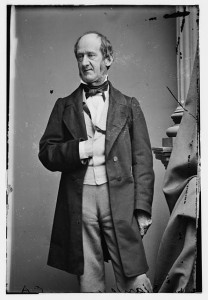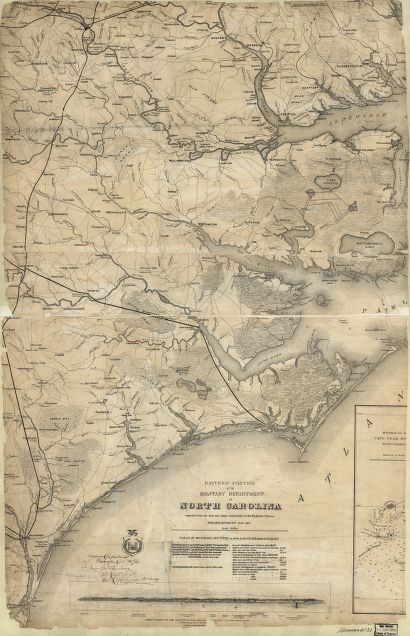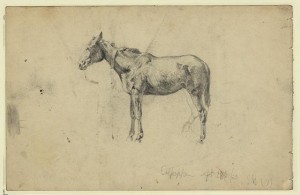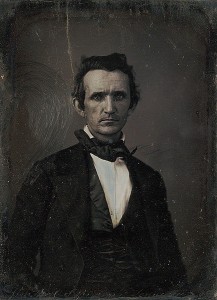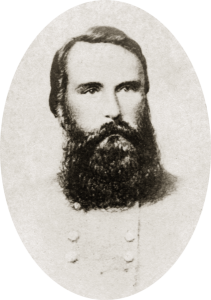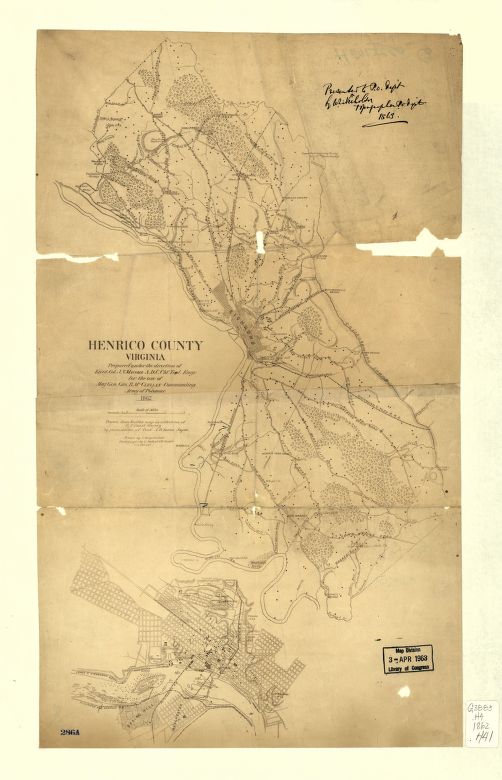… depends on crushing the rebellion
150 years ago today the editors at The New-York Times came to grips with the fact that the Union Army of the Potomac was not going to be capturing Richmond any time soon. In fact, the army was considerably farther from Richmond than before the “Week of Battles”. (By the time this was published the army had backed up even more to Harrison’s Landing) The editors urged the citizenry to become even more resolute in defeating the rebels.
From The New-York Times July 3, 1862:
The News from Richmond The New Call for Volunteers.
We have at last full reports of recent movements in front of Richmond. We are sorry to say that they do not fully sustain the encouraging interpretation which the public sought to put upon the brief announcement, that our right wing had been attacked and had withdrawn to the other side of the Chickahominy. We have now no room to doubt that our army has met with a very serious reverse, and that it is in a condition of peril, which, if not imminent, at least calls for the instant and energetic efforts of the Government and the country.
Two of the regular corps of the TIMES Reporters left Gen. MCCLELLAN’s headquarters, which are now on the James River, on Monday afternoon, and reached this City last evening. They were spectators of the events which they describe, and although their reports are of necessity written in haste, and may, therefore, err in matters of detail, there is no reason whatever to doubt the entire accuracy of the narrative they give of the principal movements of the opposing forces. …
Our whole army, therefore, now lies upon the James River, at a point called Turkey Bend, within reach, and under cover of our gunboats. Supplies will speedily reach it from Fortress Monroe, and it seems, indeed, to have withdrawn its stores in good order and without serious loss.
Beyond all question, this intelligence will fall with heavy weight upon the public heart. It is entirely unexpected, and shatters the high hope which the whole country has of late indulged, that, with the fall of Richmond, the end of the rebellion was close at hand. But this depressing effect will be temporary. A day’s reflection will rouse the whole country to the necessity of another effort to crush the rebellion. However we may regret the necessity for further sacrifices, there is no alternative. “We have no election, even if we were base enough to desire one.” We cannot yield to the rebels in arms without absolute and permanent disgrace, — without complete ruin to all our hopes of national renown, without the loss of everything that makes our country great, prosperous and free.
The Government will meet this crisis with an intrepid spirit and a determined purpose, — and it must be met by the country in the same temper and with equal courage. The President, as if in anticipation of such a contingency, has already called for 300,000 additional volunteers. Every man of them ought to be enrolled within a fortnight. We shall have, we hope, no wranglings in the Press or elsewhere over the past, — no criminations or hostile criticisms, — no attempts to screen demerit or exaggerate defeat. The country needs the best service of all her sons. Let the only contest be for precedence in the race for her rescue!
Hal Jespersen’s map is licensed by Creative Commons.

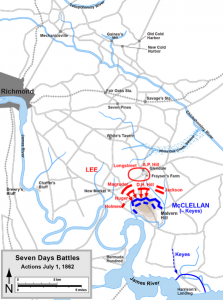
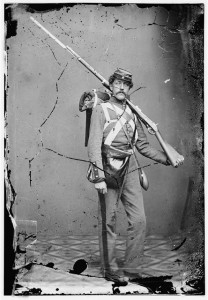
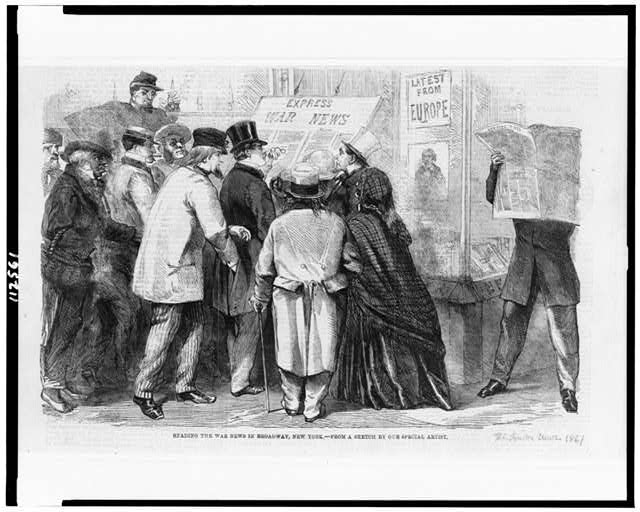
![The heart of the rebellion: scene of the late Seven Days battles near Richmond; new base of operations of the Army of the [P]otomac. (Philadelphi Inquirer,1862; LOC: g3884r cw0650200 http://hdl.loc.gov/loc.gmd/g3884r.cw0650200) The heart of the rebellion: scene of the late Seven Days battles near Richmond; new base of operations of the Army of the [P]otomac. (Philadelphi Inquirer,1862; LOC: g3884r cw0650200 http://hdl.loc.gov/loc.gmd/g3884r.cw0650200)](https://www.bluegrayreview.com/wp-content/uploads/2012/07/PetersburgRichmond1862-253x300.jpg)
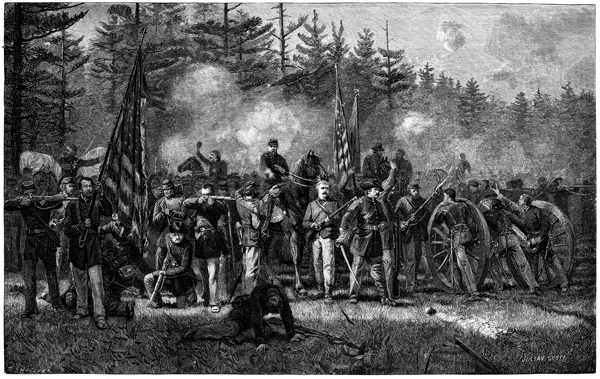
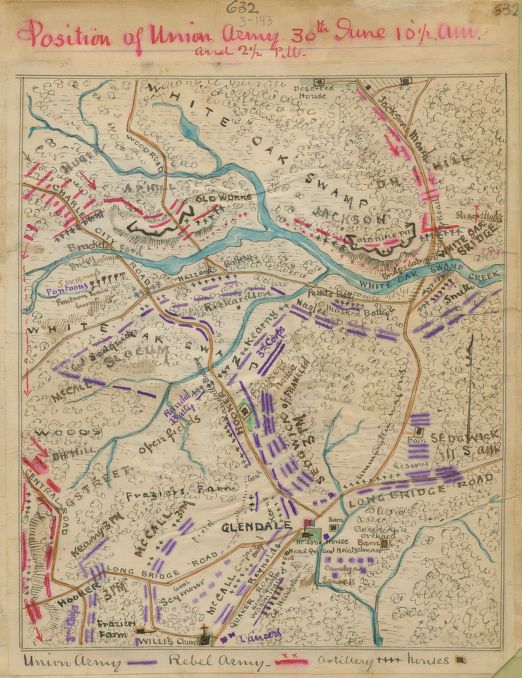
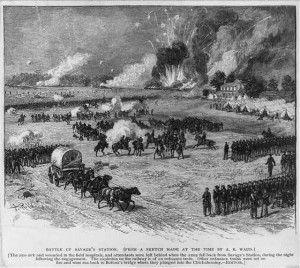
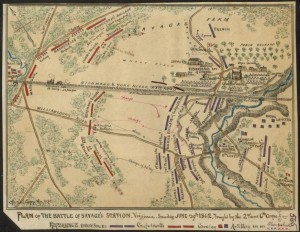
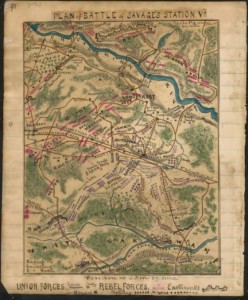
![View of Vicksburg and plan of the canal, fortifications & vicinity Surveyed by Lieut. L. A. Wrotnowski, Top: Engr. Drawn & lithogd. by A. F. Wrotnowski C.E. Wrotnowski, L. A. CREATED/PUBLISHED [S.l.], 1863. View of Vicksburg and plan of the canal, fortifications & vicinity Surveyed by Lieut. L. A. Wrotnowski, Top: Engr. Drawn & lithogd. by A. F. Wrotnowski C.E. Wrotnowski, L. A. CREATED/PUBLISHED [S.l.], 1863.](https://www.bluegrayreview.com/wp-content/uploads/2012/06/Grants_Canal_detail-300x212.jpg)
